Chateau Bel Air Marquis D'Aligre Margaux 2010 750ml
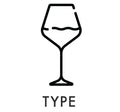



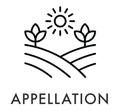

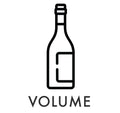
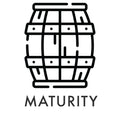
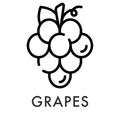

The Wine Advocate | RP 94+
Published: Oct 31, 2022
A deep, brooding and rather powerful wine by the standards of this estate, the 2010 Bel Air Marquis d'Aligre unwinds in the glass with aromas of black cherries, wild berries, licorice, asphalt and cardamom. Medium to full-bodied, deep and layered, it's rich and concentrated, with an ample core of fruit framed by sweet, powdery tannins. From my cellar, this is still the better part of a decade away from its peak, and if approached today, it benefits from several hours in a decanter.
This singular estate, located on the plateau of Virefougasse in Margaux, has been described with some justice as the last of Bordeaux's Mohicans. Octogenarian Jean-Pierre Boyer farms only a few remaining hectares of vines, many of them very old and co-planted with a medley of heritage vine material. Vinification is in cement vats, and élevage—all three years of it—is in cement too. Nothing has really changed here since the 1960s, when Boyer threw out his last remaining oak barrels, and that has both a good and a bad side. The vineyards are in poor shape, with many missing vines and weed competition managed with herbicides; sadly, at some point, it's likely they'll simply be replanted, and interesting vine genetics dating back to the late 19th century will be lost. The advantage, of course, is that for the time being the gnarled old vines produce low yields of concentrated fruit, without the influence of modern clonal selections. Similarly, if the wines sometimes exhibit more bottle (or is that batch?) variation than their more modern neighbors, Bel Air Marquis d'Aligre also recreates the style and balance of the Bordeaux of yesteryear: moderate alcohols, no veneer of new oak, notable aging potential—and no vainglorious consulting enologist! For my part, I love the wines; but they have sometimes made me think of the remark, misattributed to Nietzsche, that those who were dancing were thought mad by those who did not hear the music. Certainly, readers habituated to plush, rich, opulent 21st-century Bordeaux may struggle to appreciate them; yet those who are more deeply versed in the region's heritage are likely to find more to enjoy. I'll be publishing some older tasting notes on bottles from my cellar soon, but the 2010, still available on the marketplace today, is included here as one of Boyer's greatest "recent" successes.
Drink Date: 2027-2060

